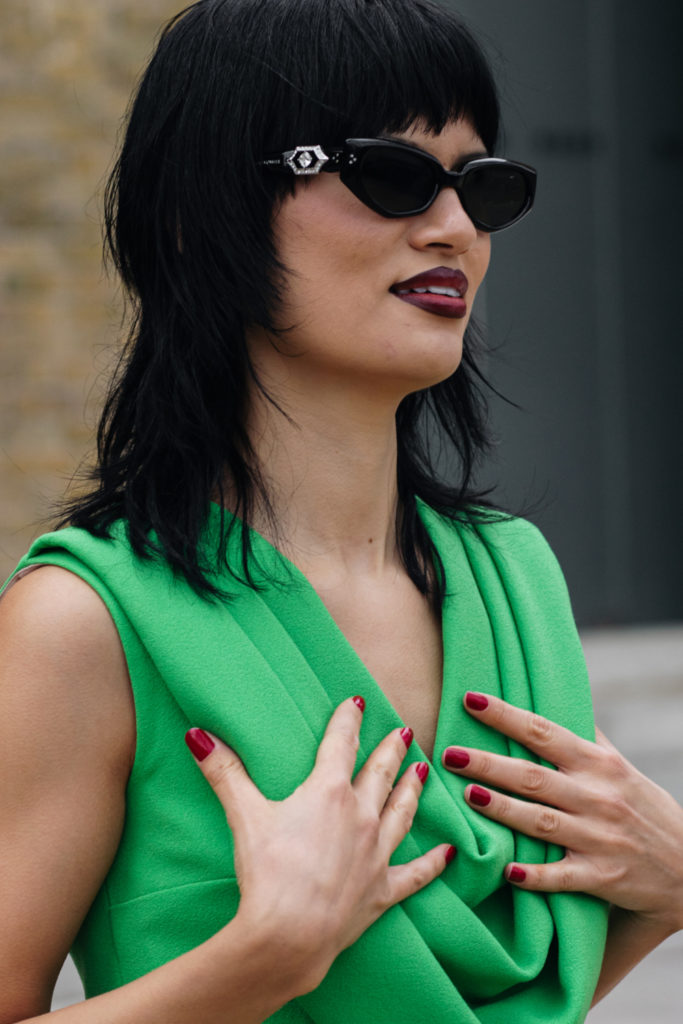Can Ashwagandha Help You Sleep?
By
10 months ago
We delve into the science surrounding the ancient herb

Move over magnesium: there’s a new trending supplement on the scene. Ashwagandha, a medicinal herb, is having a moment on TikTok right now, but does the ancient herb live up to the social media hype?
Ashwagandha: Benefits & Side Effects
What Is Ashwagandha?
Also known as withania somnifera, Indian ginseng or winter berry, ashwagandha is an evergreen shrub found in parts of India, Africa and the Middle East. Dr. Vijay Murthy, ayurvedic doctor and co-founder of Harley Street clinic Murthy Health, describes it as ‘a medicinal plant that has been used in Ayurvedic medicine for over 3,000 years’, believed to help with everything from combatting stress to reducing inflammation. ‘Ashwagandha is an adaptogen and hence helps in stress, be it physical or psycho-emotional stress,’ he adds.
Despite being around for centuries, it’s having a moment right now after being discovered by TikTok’s wellness brigade. Ashwagandha comes in several different forms, including powder, capsules, tablets and gummies. It has a slightly bitter, earthy taste, so some people choose to mix the powder with water or milk and sweeten it with honey.
What Are The Benefits?
A whole host of health benefits are associated with taking ashwagandha, from improved cognitive function to better sleep and reduced anxiety. But which ones are backed by science?
Stress relief
There’s some evidence to suggest ashwagandha can help with stress reduction. ‘Several studies, like this one in the Indian Journal of Psychological Medicine, have proven that ashwagandha can significantly reduce cortisol levels, improving stress and anxiety when participants took ashwagandha extract daily,’ notes Dr. Murthy.
Similarly, one small study saw 58 participants taking 250 or 600mg of ashwagandha for eight weeks, finding cortisol levels reduced with both amounts. Another review, meanwhile, analysed 12 papers, concluding ashwagandha supplementation has a beneficial effect on stress and anxiety. However, a separate review from 2021 came to a different conclusion, arguing that the evidence surrounding ashwagandha and its effect on stress disorders is inconclusive.
Exercise performance
Ashwagandha root may boost your gym sessions. This study suggests the herb can improve cardiovascular endurance, while research published in Nutrients in 2020 found taking ashwagandha may enhance maximum oxygen consumption (VO2 max) in healthy adults. Plus, a review published in The Journal of Functional Morphology and Kinesiology found the supplement can benefit muscular strength and fitness levels.
Improved sleep
Ashwagandha is often billed as a magic pill for better sleep, but are the claims founded? The research is still limited, but there is some evidence to suggest the supplement will help you get a better night’s shuteye. A meta-analysis explored the impact of the herb on sleep, finding it had a positive impact on sleep – particularly in people with insomnia. Another found taking ashwagandha affects our GABA receptors in the brain, consequently promoting better sleep.

(c) Pexels
Who Would Benefit From Taking Ashwaganda?
‘I would suggest ashwagandha to people looking to enhance their physical endurance or those dealing with chronic fatigue and poor sleep, as it has shown potential benefits in these areas,’ Dr Murthy advises. ‘Additionally, it may be helpful for individuals with mild cognitive decline, as some studies indicate improvements in memory and cognitive function.’ Dr. Murthy also notes that some women going through peri-menopause find it useful for combating brain fog, fatigue and irritability (there’s some evidence to back this up too).
Is It Suitable For Everyone?
‘A potential issue with ashwagandha is that it may interfere with thyroid function in some individuals, particularly those with thyroid disorders,’ says Dr. Murthy. ‘It is also advisable for pregnant or breastfeeding women to consult their healthcare provider before taking ashwagandha.’
























